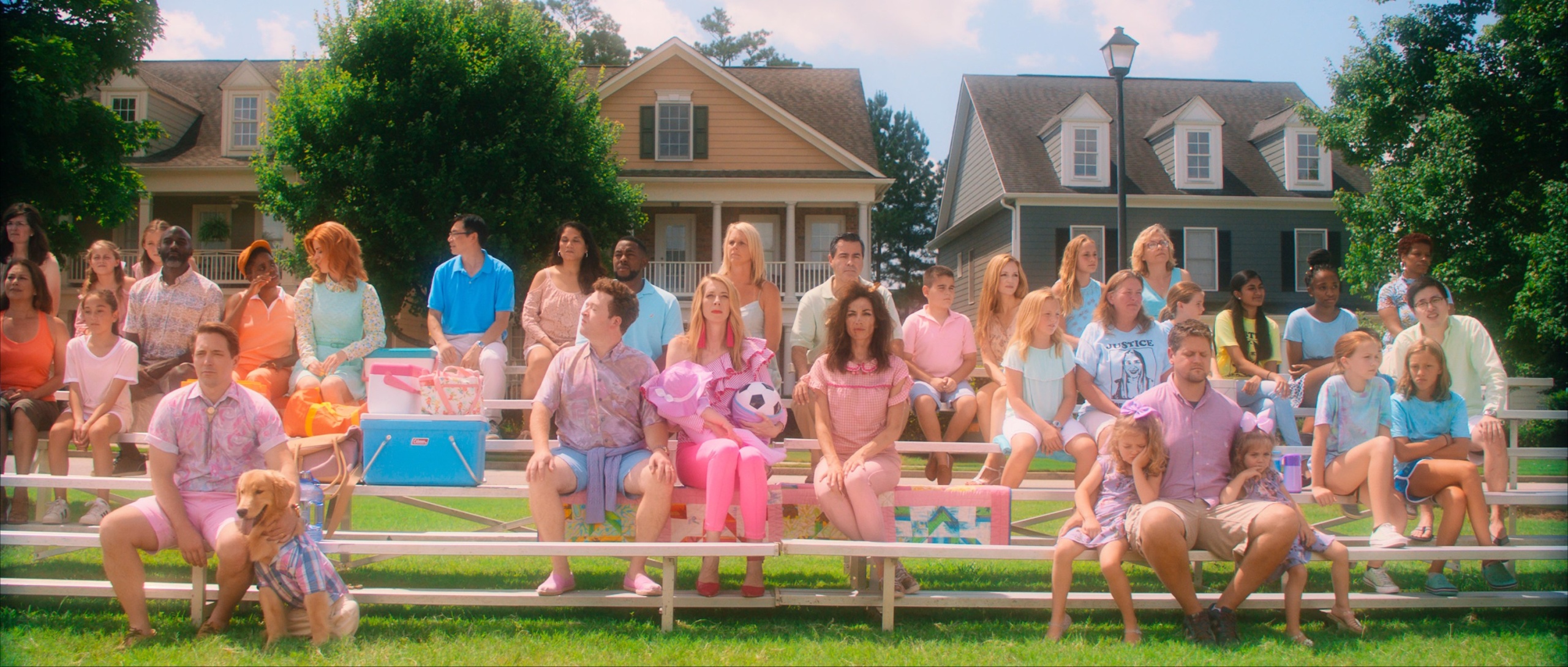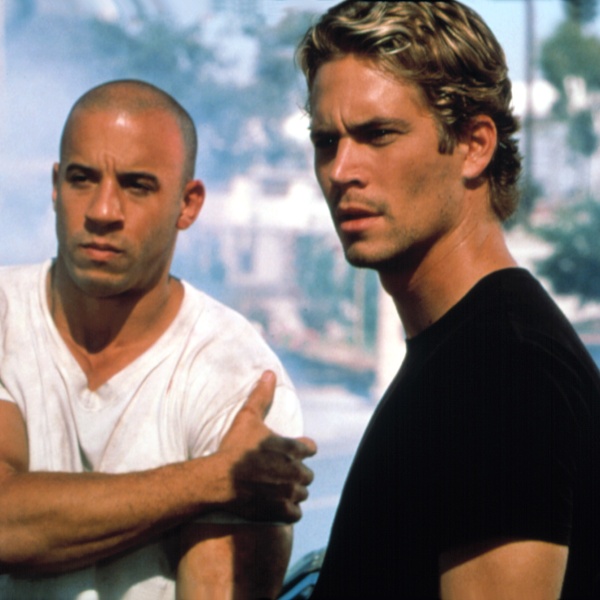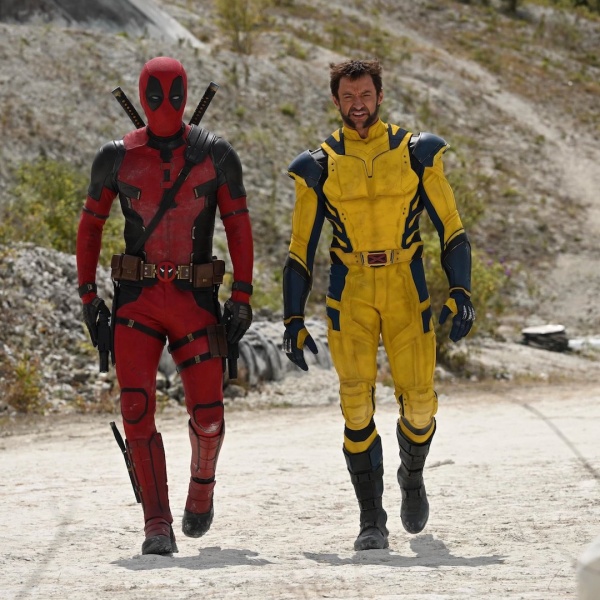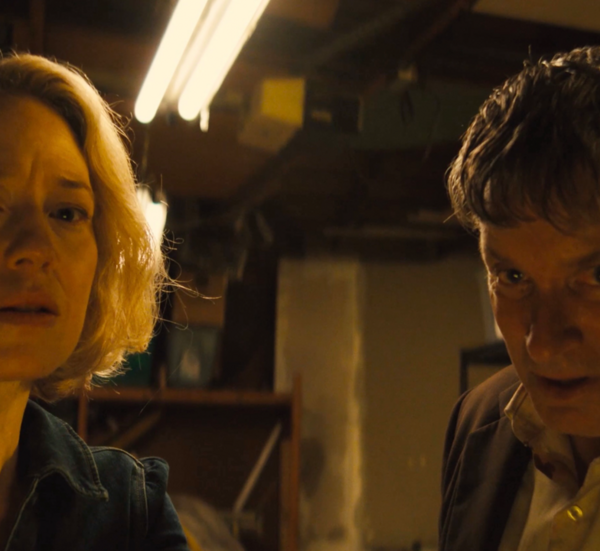
On Friday nights, IndieWire After Dark takes a feature-length beat to honor fringe cinema in the streaming age.
First, the spoiler-free pitch for one editor’s midnight movie pick — something weird and wonderful from any age of film that deserves our memorializing.
Then, the spoiler-filled aftermath as experienced by the unwitting editor attacked by this week’s recommendation.
The Pitch: It’s Time for IndieWire After the Dark Underside of Suburbia
I’ve long felt that the premise of “This Suburban Utopia Has Something Dark Lurking Underneath It” is among the lamest, most played-out tropes in all of media. Decades have passed since any serious person viewed the stylized suburban innocence of “Leave It to Beaver” as a remotely accurate depiction of American life, and contemporary attempts at “subverting” it often feel as if artists are mocking the same media that they grew up watching other artists mock without pausing to consider how much times have actually changed.
Exceptions to my distaste for the subgenre are few and far between, but they do exist. David Lynch gets a pass because works like “Blue Velvet” and “Twin Peaks” seem to work in the opposite direction of other anti-suburbia art. Rather than pulling the rug out from under audiences and telling them their lives are bad, Lynch seems to begin from the perspective that idyllic suburban nuclear family life is a good thing — his films are about him sadly making peace with the fact that it isn’t always the case. The other notable exception to my rule is “Greener Grass,” Jocelyn DeBoer and Dawn Luebbe’s 2019 Sundance hit that seems to riff on the riffing on the downsides of suburbia, using idyllic 1950s imagery (and 21st century parodies of it) as a canvas to create some of the most unapologetic weirdness I’ve ever seen on screen.

Rather than wait for a third act twist to reveal that its nameless suburban utopia is actually sinister, “Greener Grass” lets everyone know how fucked up it’s going to be within seconds. As they sit in the stands at a youth soccer game that apparently enforced a strict “Only Wear Colors You Can Find in a Drugstore Easter Egg Dyeing Kit” rule, Lisa (Luebbe) absentmindedly compliments Jill (DeBoer) on her adorable baby. And for no reason at all, Jill decides to permanently gift the baby to Lisa, who gladly accepts.
Thus begins the strangest, most impeccably crafted tableau of suburban surrealism you’ll ever lay eyes on. Despite living in a bizarro world where couples can publicly make out with each other’s spouses out of sincere confusion and husbands can insist on drinking pool water with every meal without anyone batting an eye, everyone still thinks Jill’s inexplicable decision to give her baby away is kinda weird. Jill soon begins to regret her decision, and one of her other children who inexplicably turns into a golden retriever somehow manages to make the situation worse.
Much of “Greener Grass” unfolds like a series of “I Think You Should Leave” sketches that were left on the cutting room floor of “Blue Velvet,” with every ensemble cast member and below-the-line artisan buying into DeBoer and Luebbe’s pastel-hued vision of dystopia with complete conviction. To me, “Greener Grass” is a shining example of how a movie with minimal structure can succeed purely on the brilliance of its world building. This perverse sitcom-esque town might not have had enough narrative depth to carry a long-running show, but DeBoer and Luebbe built us a swimming pool of extra-chlorinated weirdness that I can dive into and gleefully drink from for ninety minutes whenever I damn please. I can’t think of a higher compliment to give a midnight movie than that. —CZ

The Aftermath: Someone Tell Tolstoy About Graveside Soccer Practice
Happy families are all alike, but every surreal suburban nightmare is color-blocked in its own way.
From box office bombs as big as the 2004 “Stepford Wives” remake to tiny indie darlings like IFC Films’ “Swallow,” Waspy domesticity has indeed proven fertile ground for exploring the American nuclear family in countless films. “Greener Grass,” a queasy tribute to stay-at-home mom malaise and a near-universal embrace of orthodonture, doesn’t break the jello-mold on that already supersaturated subgenre: one that’s bothered me as much as Zilko for I imagine just as long. But what Jocelyn DeBoer and Dawn Luebbe’s hilarious and horrific spin on homemaking lacks in true-blue originality, it more than makes up for with a disturbing specificity clearly made with midnight movie crowds in mind.
Not every film can turn elements of “This Boy’s Life,” “Airbud,” and “The Lobster” into a heart-wrenching tale of wasted after-school activity fees and childhood neglect. Fewer still can make that just one subplot in a painful portrait of an emotionally stunted but psychologically complex community that seems strangely intent on torturing itself. (With 20 minutes to go, there was a woman pregnant with a soccer ball… a neighbor she wanted to fuck, yes, drinking his weight in pool water… and, oh, did you hear Kim Ann is getting divorced? Yeesh.)

There’s at least a miniseries-worth of brilliant ideas worth heightening here (that “I Think You Should Leave” comparison is apt!), be it through a flashback to the murderous rampage of Denise Human or a cutaway to the briefly advertised father-daughter candle-making workshop. This richly imagined world is what makes “Greener Grass” stand out as a work worth preserving, effectively finding new ways to show us the adventures of unhappy families in what would otherwise be a stale retrofitting of themes explored since Tolstoy. Even as its sunny familiarity increasingly recalls Adult Swim’s “Three Busy Debras” or Hulu’s “Pen15,” this odyssey in the terrors of unchecked people-pleasing is simply too detailed to feel reductive. Plus, it’s a rare entry into the still too-small faction of zany comedies geared towards and made by weird, weird, weird women.
Enjoyed on a spring evening, and considered in the context of the rest of our canon, this latest IndieWire After Dark selection feels maybe closest to “Small Apartments.” That’s another look at an atypical neighborhood grappling with the threat of a killer on the loose and it won’t remind you anything of “I Love Lucy.” You’ll have to watch both to decide which has the better one-liners, but “SO MANY CLOCKS IN ME!!” will be hard to beat. —AF
Those brave enough to join in on the fun can stream “Greener Grass”with an AMC+ or IFC Unlimited subscription or rent it on VOD platforms. IndieWire After Dark publishes midnight movie recommendations at 11:59 p.m. ET every Friday. Read more of our deranged suggestions…
- ‘Slaughter High’ Is the Wildest Slasher Film to Ever Follow April Fool’s Day to Its Logical Conclusion
- Let There Be Lesbians! Celebrate Easter with the Sinfully Sweet ‘Jesus Christ Vampire Hunter’
- A Fake Snuff Film for Anne Hathaway: How ‘Be My Cat’ Founds Its Cult Following






